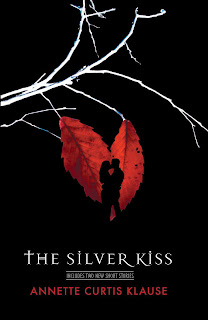3W4D giveaway book #2: Skin Game by Ava Gray
May. 6th, 2010 12:03 amJust when you think I've fallen off the face of the 'verse, I come rolling on back with another one. This time it's Skin Game by Ava Gray.

Genre: Paranormal romance
Release: November 2009
If I were to list, off the top of my head, all the reasons I like this book, they would be (in no particular order): the hero is not a rapist, asshat, or domineering to the point of controlling the heroine; the heroine is highly independent, self-confident, and assertive; her magical powers (which are minimal, but impressive) do not define her; and Kyra and Reyes' sharp, fiery banter. The sex scenes are hot, too, although what Kyra thinks is kinky makes me laugh just a little on the inside.
Kyra's a badass conwoman/thief on the run after pulling off a major heist. Reyes is an assassin sent to kill her and bring back the loot. Too bad Kyra's skill is the ability to temporarily steal other people's best skills and use it against them. This paranormal is low on the paranormal (paranormal-lite?), and I wonder if that might be why I like it so much. Not necessarily because I prefer less emphasis on the paranormal--as a fantasy reader, that's simply not true--but perhaps because, by focusing less on Kyra's magical powers, Ava Gray was able to write her as fully fleshed-out character whose identity did not revolve around her power.
As I see it, the current structure for paranormal romance and modern urban fantasy allows the heroine to rely solely on her magical powers and/or her boyfriend(s) to get her out of a jam. Which isn't necessarily a bad thing, because the paranormal/urban aspects are what define the subgenres, but when magic or guns or sexuality or boytoys replace any real characterization of the heroine--her personality, her intelligence--the book loses impact. It's easy for PR/MUF heroines to become cardboard copies of each other: the gun or the mysterious powers become all there is that you need to know. Kyra's strong in the sense that she's not easily manipulated, she's cunning, and she gives back what she gets. Her ability to steal others' skills doesn't overwhelm or define her. She is also Reyes' equal, and him hers (which I think speaks to his humanity and strength, too).
Another refreshing tidbit was Reyes' lack of magical powers. He still fits the physically-strong-hero mold, but Kyra has the advantage; she's something he's never seen, never dealt with before. And whatever strength he has is negated when she steals it.
Make no mistake, Reyes does use his strength, and has flash impulses that portray him as potentially controlling and even dangerous--but he never acts on those impulses without Kyra's consent. He's manipulative; he has to be. But the danger, the real danger, stays out of the bedroom. It's a fine line and I feel like Gray walked it well.
The cover baffles me. It's clearly supposed to depict Reyes in all his half-naked glory, even though the story revolves around Kyra. Her motivations, her plotline, her actions are what propel the story forward. But at the same time, I'm somewhat grateful that it's not yet another half-naked, leather-wearing woman on the cover. And I suppose it coincides the title.
Which, by the way, I had to look up: "A term coined by renowned investor Warren Buffett referring to a situation in which high-ranking insiders use their own money to buy stock in the company they are running." I had quite the "OH!" moment, although it doesn't make sense until the end.
The ending... I don't know how I felt about the ending. It seemed rushed, and both characteristic and uncharacteristic of Kyra. Also, I'm annoyed that character ____ is going to be the hero of the next book, because he came off as such a creeper in Skin Game. It would take a lot of convincing to redeem him as a hero.
Overall, a good read. I love the concept of paranormal romance in theory, but it can be difficult to love in practice. PR books tend to follow the same pattern, a pattern I tend to take personal issue with. Skin Game shakes things up and even does a little dance in all its rebellious glory.
Want to win Skin Game? Hang around until May 13th, when I open a post for entries (and don't forget to read the rules!).
Sorry for the delay on responding/commenting. I hope everyone is having a good Three Weeks!





